The 2013 epic film, Gravity, produced by Alfonso Cuaron, most assuredly deserved the seven Oscars it received at the 86th Academy Awards in Los Angeles, California. This suspenseful and breathtaking movie keeps your heart pounding and your eyes glued to the screen right up to the very end. The film stars Sandra Bullock as Dr. Ryan Stone, a medical engineer, and George Clooney as NASA astronaut, Matt Kowalski, and takes place right outside earth’s atmosphere: space. As Stone and Kowalski are in orbit doing engineer work on their shuttle, The Explorer, they are hit with massive amounts of debris from a failed Russian Missile attack. The Explorer is destroyed and Stone and Kowalski are detached from its remaining foundation. Left adrift in orbit, the two must work together to survive and get to the nearest shuttle before oxygen runs out and sends them even further into the outer reaches of space. Though it has been three years since its premier, Gravity is an incredible and extremely well made epic film that remains a one of a kind masterpiece to this day. It has a strong lead character, a main dramatic/impactful event that is the foundation for the movie, a suspenseful moment where all hope seems lost for the hero or heroine but then is overcome, and contains an overriding lesson. This epic film meets all four criteria with both unique and captivating qualities that leaves its audience breathless and in awe.
Gravity was released into theaters October 4th, 2013. Its director, Cuaron, faced many challenges making this film. It’s no easy task making a movie appear to be in a place that doesn’t exist; such as in Star Wars or in Lord of the Rings. It is a whole other challenge to make a film appear to be in a place that exists but yet could never be filmed; such as space. The director has to be sure to get imaging, sound, movement, and other such aspects correct so that their audience is pleased and truly believes the movie is in space. “We wanted to create a film that you couldn’t watch with your eyes closed; a film that was all about experience and seeing what was in front of you” said Cuaron in an interview with The Guardian. He certainly succeeded. Gravity received 10 nominations at the 86th Academy Awards in LA, California: actress in a leading role, best picture, cinematography, directing, film editing, music, production design, sound editing, sound mixing, and visual effects. The film won seven out of the ten nominations. Out of the 49 critic reviews gravity received on Metacritic website, all 49 were positive (90% being the average score). The film also received eight out of ten stars on IMDb Movies. The ratings are clear, Gravity excelled at the IMAX and in the hearts of its viewers. It holds a high rank in the category of Epic Films. Aside from jaw-dropping and unbeatable cinematography, Gravity excels in the four basic criteria that make up an epic film.
Beloved actress Sandra Bullock stars in Gravity as Dr. Ryan Stone, medical engineer, and does an outstanding job as the heroine in this epic film. In the movie, Stone is new to the NASA program and is a rookie at being up in space; however, she is brilliant and when disaster strikes The Explorer, leaving her and Kowalski (Clooney) drifting out into space, she becomes very assertive and efficient. Stone takes instruction from Kowalski and doesn’t lose control of her emotions. What makes Ryan Stone such a strong lead character, however, is what she becomes and the more the viewer learns about her as the movie goes on. Stone’s character really gets put into the spotlight when she and Kowalski are heading to the Russian shuttle and even more so once they arrive. The two characters get into a discussion about Stone’s personal home life and, in doing so, reveals that Stone had a daughter that died at a very young age. At this point in the movie, the heroin appears to be weak and vulnerable but also very relatable. She isn’t invincible, she is human and has pain like everyone else. Stone becomes a very strong leader upon reaching the Russian shuttle when Kowalski is unable to hold onto Stone who is caught on some ropes descending from the Russian Shuttle. Against Stone’s demands for Kowalski to hold onto her, Kowalski lets go to give Stone a fighting chance at survival, knowing that holding on meant death for them both. It is now up to Stone alone to find a way to get home.
The second required piece of criteria for an epic film is that the film must be based around an impactful and dramatic event that is the basis for the movie’s storyline. In Gravity it is the Russian missile attack. It is this catastrophe that causes The Explorer to be destroyed and for Stone and Kowalski to be launched into space. The debris from this tragedy comes back every 90 minutes and destroys more space stations. So even after the original debris hit The Explorer and after Stone has made it aboard the Russian shuttle, there is always that anticipation of, “when will the debris arrive? Will she make it?” It’s very nerve wracking for the audience and keeps viewers engaged.
There is a reason an epic film is called an “epic film.” The next criteria is one of the utmost importance. It is the “epic” climax. It is the point in the story where all hope seems lost. That there is no way this story could end with a happily ever after. This is where it ends. Viewers are sure of it, until, suddenly, there is a rebound. The character makes a striking comeback and suddenly there’s a way. In Gravity, that point occurs when Ryan Stone has made it aboard the Russian shuttle but there is a massive fire and she has to make a quick exit. She gets into the launching section of the shuttle and successfully detaches, heading toward the Chinese space station where she can find a way to land safely back to earth. There’s just one problem: there’s no fuel left in the Russian engine. She can’t make it to the Chinese space station. After trying desperately to make contact with anyone who may listen without success, Stone realizes there’s no hope for her and she shuts down the oxygen supply in the cabin to commit suicide. Just then Kowalski bangs against the window and enters the cabin and scolds Stone or giving up and tells her all the reasons she has to live and that she CAN and WILL survive and have an amazing story to tell. Stone suddenly wakes up in the cabin with Kowalski gone, realizing it was all a dream, but nevertheless has found new strength and decides to do whatever it takes to survive and she turns back on the oxygen.
The final of the four criteria for an epic film is the lesson. There has to be an overriding lesson that was taught and learned through the course of this movie and peaks at the very end. The overriding lesson in this particular film revolves around strength and courage. It enforces the idea that we are all stronger than we think we are. Just when Dr. Stone is about to give up her life Kowalski comes into her conscious and reminds her of her reasons to live; that even though her daughter died and that dying in space seems like a great escape, it’s not. Stone needs to live. Kowalski makes it clear. So she decides to do everything she can to survive or die trying. She aligns her cabin with the Chinese space station that appears to be just out of reach and is also about to kiss the earth’s atmosphere. Stone ejects herself from the cabin and uses a fire extinguisher as a makeshift thruster to push herself the rest of the way to reach the Chinese space station. With great effort and determination, she makes it aboard just as the station is beginning to hit the atmosphere. As Stone prepares for her uncertain landing and fate, she radios in to NASA that she is ready to head back to earth, dead or alive, with “one hell of a story to tell.”
There are some who do not think so highly of Gravity. They don’t seem to like the fact that there are only two characters in the entire film and that the whole movie takes place in space with no variety in scenery outside of space. Though the change in scenery is more of a personal preference, the two characters in the film may be few in number but their amount of talent is abundant. A few viewers have also stated that this film may cause young people who dream of becoming astronauts to become too afraid to continue to pursue that goal. This concern was mentioned in a video where a NASA astronaut was being interviewed about the film. When the interviewer asked the astronaut’s opinion on the critic’s comment, the astronaut replied, “It’s not real. This movie, though incredibly well made, is not based on a true event. I would encourage anyone who wants to be an astronaut not to let this movie discourage them from that goal.”
Despite the few opposing arguments that Gravity has or could receive, this film is unlike any of its kind. It is a truly unique and sensational epic film that demonstrates not only the four basic criteria for what an epic film should be, but also the exceeding excellence of what an epic film can be. Gravity’s extraordinary heroin, impactful event, climactic moment, and overriding lesson are presented with an intensity and flare that keep viewers eyes glued to the screen and their hearts racing at each turn. In the words of Dr. Ryan Stone, “it’s one hell of a story to tell.”




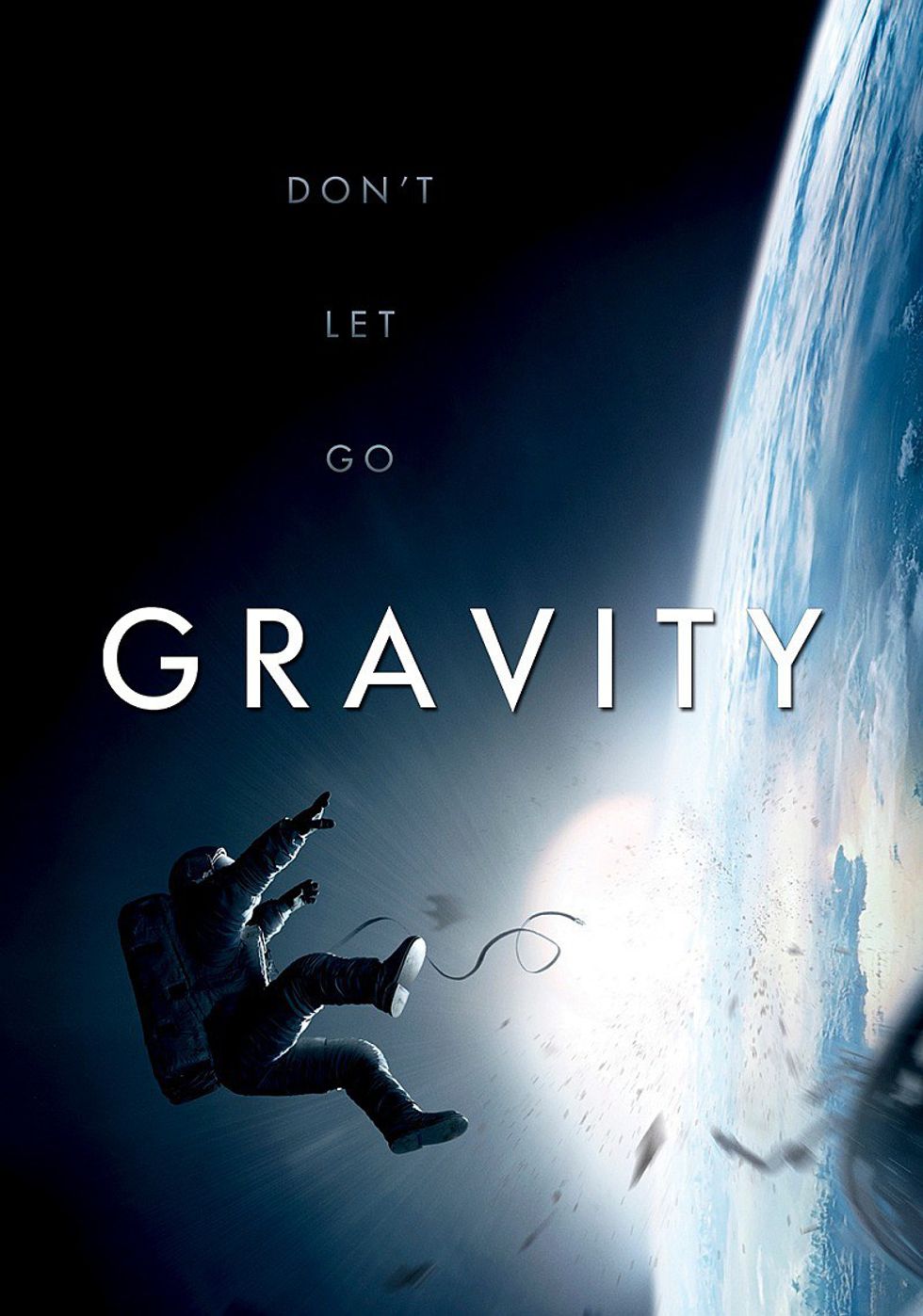
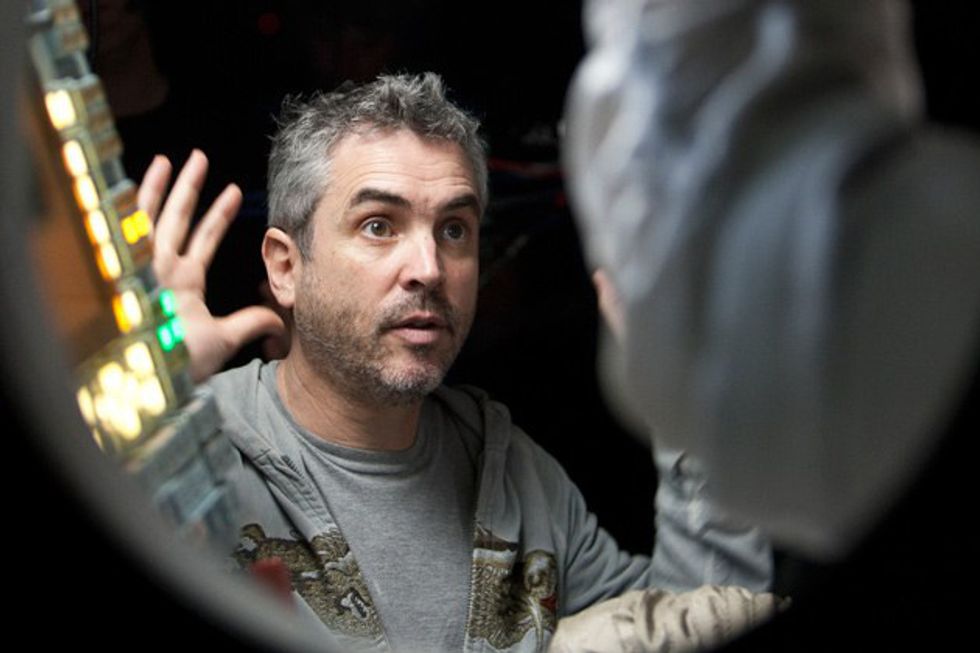
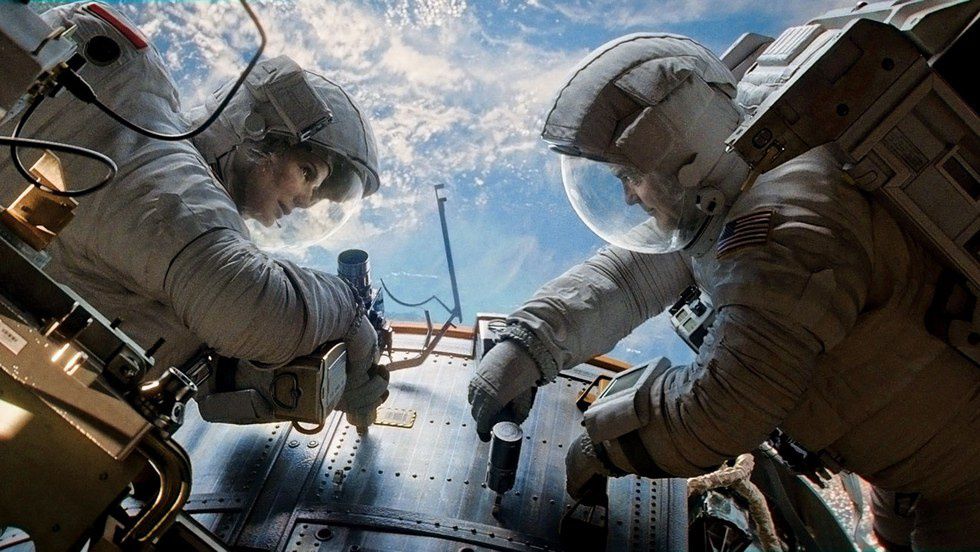
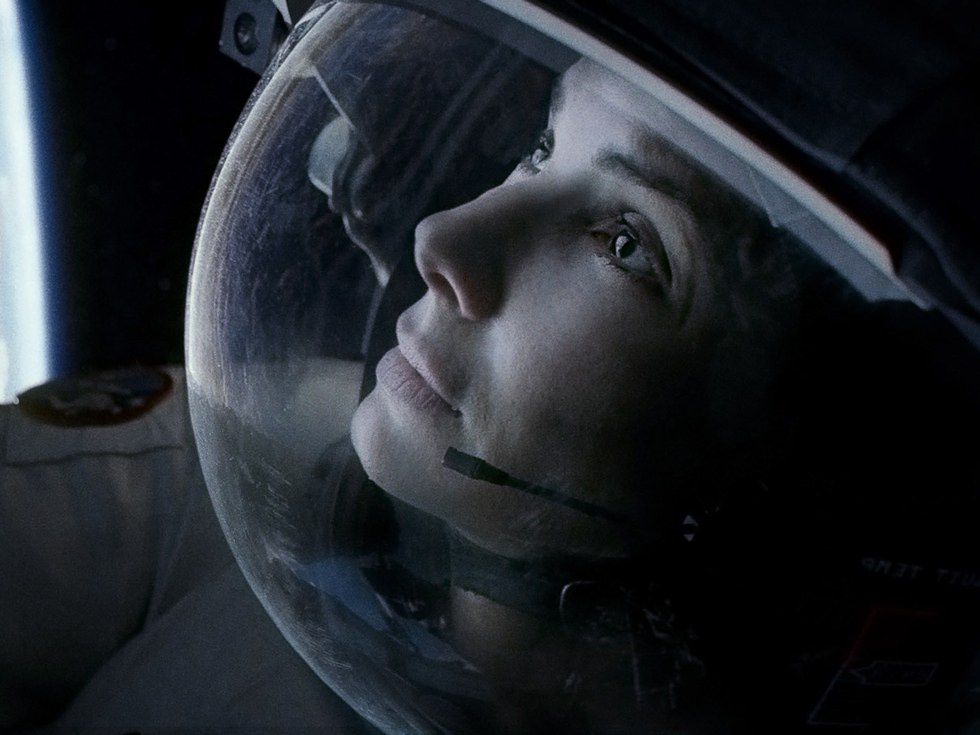
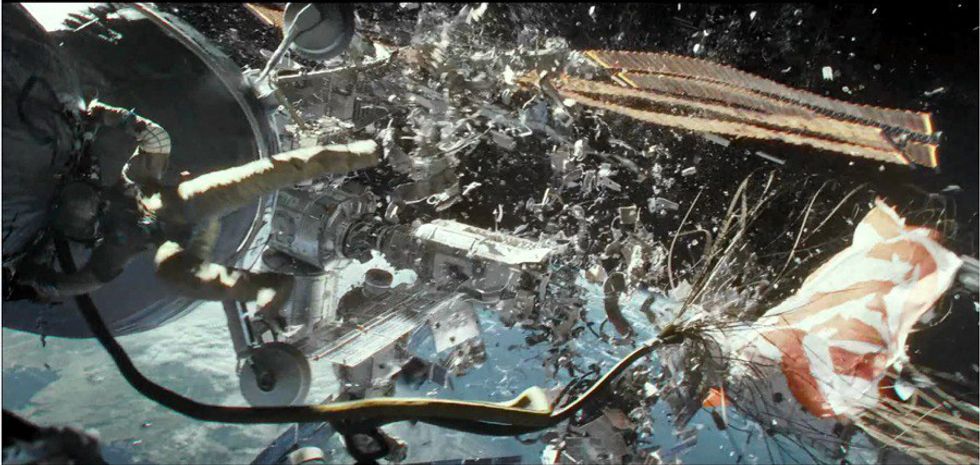
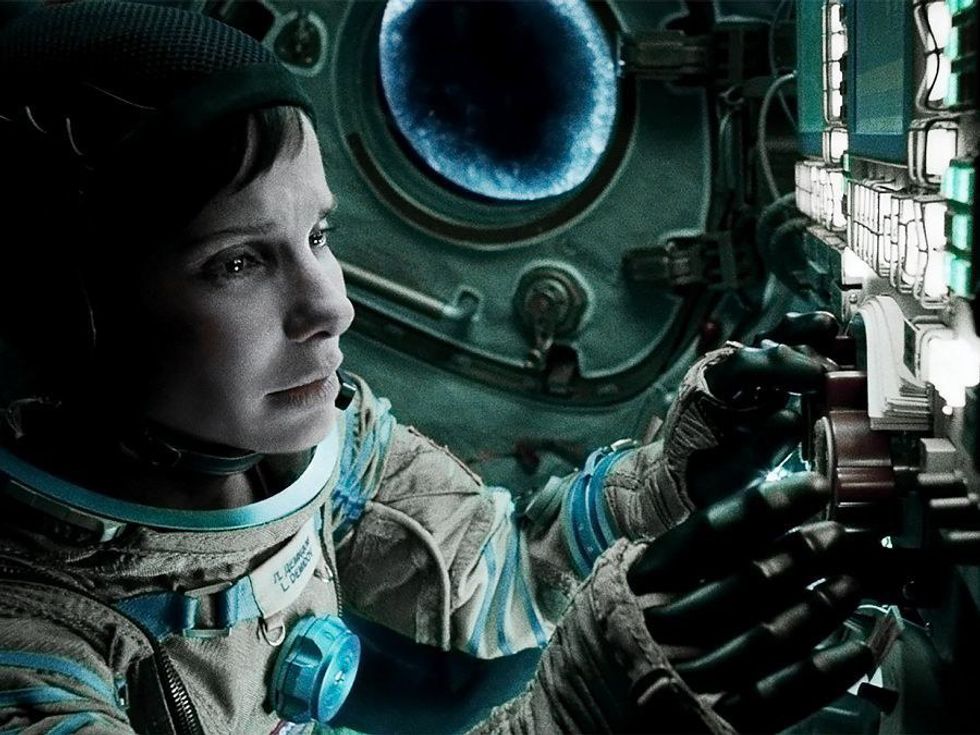
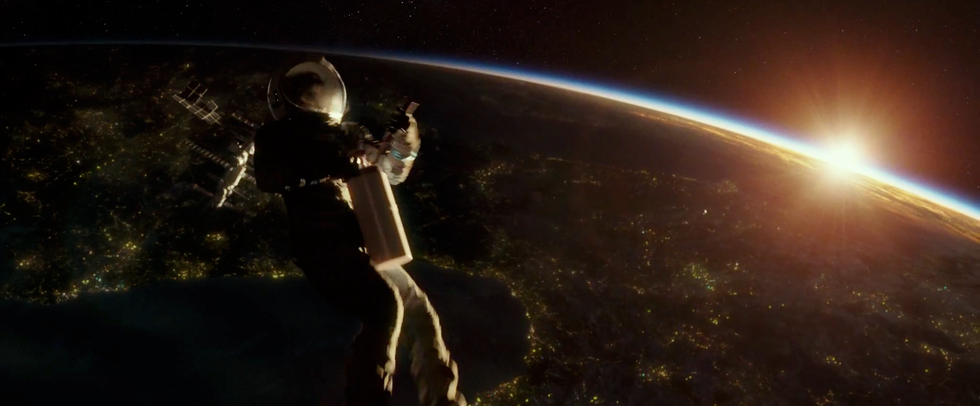


 Energetic dance performance under the spotlight.
Energetic dance performance under the spotlight. Taylor Swift in a purple coat, captivating the crowd on stage.
Taylor Swift in a purple coat, captivating the crowd on stage. Taylor Swift shines on stage in a sparkling outfit and boots.
Taylor Swift shines on stage in a sparkling outfit and boots. Taylor Swift and Phoebe Bridgers sharing a joyful duet on stage.
Taylor Swift and Phoebe Bridgers sharing a joyful duet on stage.












